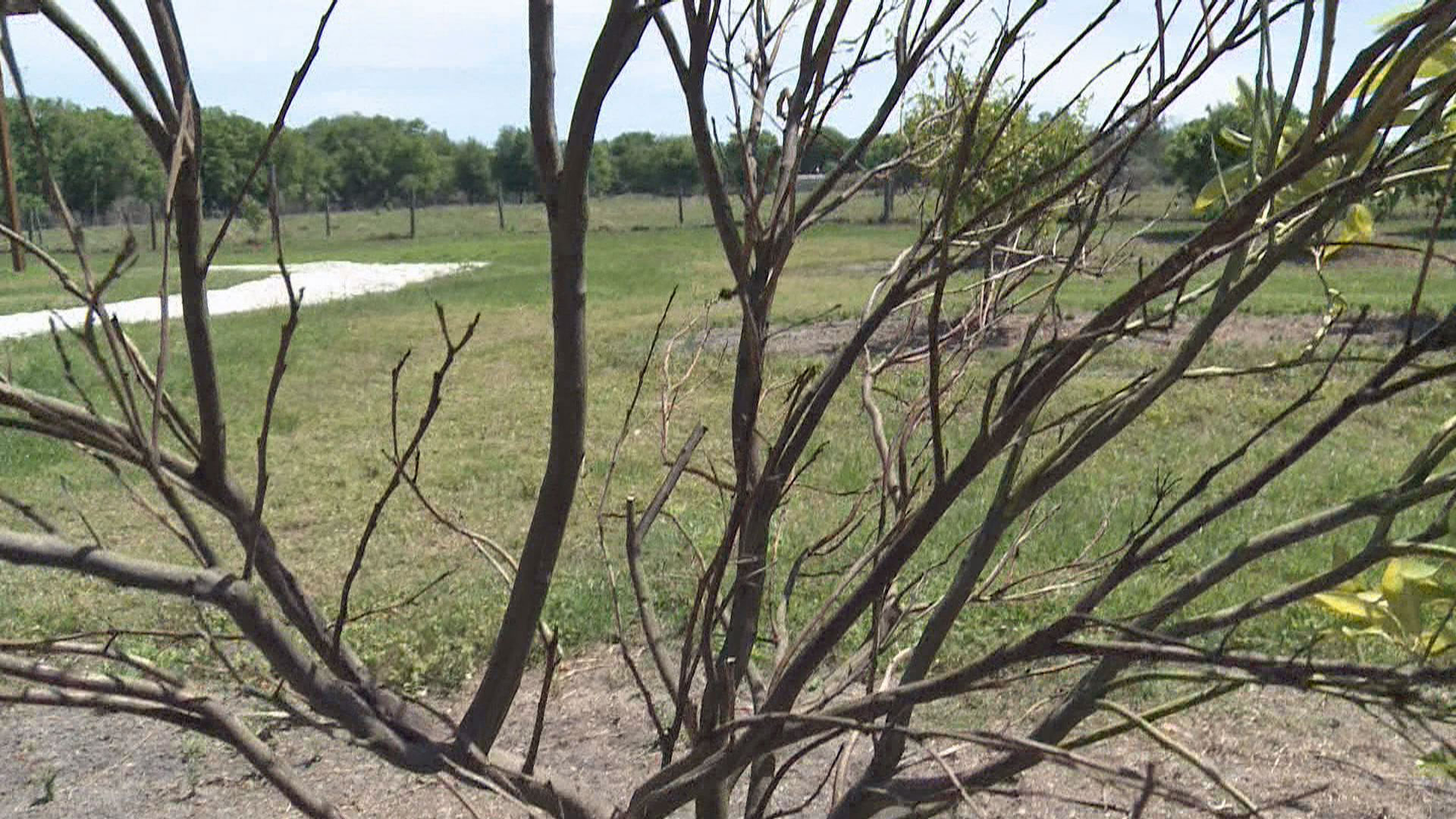Sarasota, Florida -- Time is running out. This year's orange crop in Florida is approaching the fruit's lowest harvest in decades, and the culprit: a deadly bacteria called citrus greening that's infecting the tree. But there is not cure for it so orange trees continue to die, juice prices continue to go up, and farmers continue to go out of business.
Researchers are working around the clock to come up with a solution before the orange industry in Florida is squeezed to death.
If you look closely at a bottle of Tropicana Orange Juice you'll see just one example of the impact the state has on the orange industry. We produce more oranges than any state in the country, but a tiny bug smaller then this drop of OJ is threatening it all. And some say that if it's not stopped, in five years citrus farms could all be swallowed up which has farmers like Tim Brown praying for a solution.
A third generation citrus farmer, Brown says next year will be the 100th year his family have been growing oranges here in Sarasota County.
"It's a family tradition," says Brown.
But this tradition is now being threatened.
"These are three-year-old trees and they are already affected," he says.
Browns groves have fallen victim to citrus greening.
"This tree is certainly beyond keeping," says Brown.
In 2005, citrus greening was first detected in Miami-Dade County, but now the disease has spread statewide.
"I don't think you'll find a citrus grove in the state that doesn't show signs of greening disease," Brown says.
Brown says he has spent large amounts of money over the past couple of years, to try and control the psyllid, the tiny insect responsible for the spread of the disease.
"This season we've had less fruit then we've ever had but more trees then we've ever had," says Brown.
It's statistics like that that has researchers up at the University of Florida working to come up with a cure.
"People have no idea that this has happened to the industry, not a clue," says Eric Triplett, chair of the Microbiology and Cell Science Department at the Institute of Food and Agricultural Sciences.
Scientists admit that there are no solutions as of now.
"We have a group of people working on developing plants and others working to control disease," says Triplett.
But they are optimistic that within the next two to three years there will be a short-term answer.
"In the 2000's we had 900,000 acres of citrus in Florida and now down to 300,000. It's a dangerous problem and we need to find a solution. A lot of people are working hard so we have an answer," says Triplett.
Senior Vice President of Agriculture and Natural Resources at UF Jack Payne says it's critical to find a cure not only to Florida, but to the world.
"My hope is that in the next few years we find solution for plants to live with it," says Payne.
For now, Brown has to live with the fact that there is no cure for the disease squeezing the juice out of the life that he's always known.
"It's been a wise decision," says Brown.
So instead of citrus, he's now growing vegetables and other sources of produce to make up for the huge loss that this tiny bug has already caused.
"It's devastating and a depressing situation that we're dealing with and have to have hope that there will be a cure," says Brown.
It's not just farmers feeling the pain.
Get ready to feel the pain to your pocket.
One local citrus stand says that in the past couple of years, the price of oranges has close tripled. And if there's not a cure soon, it could get even worse.


